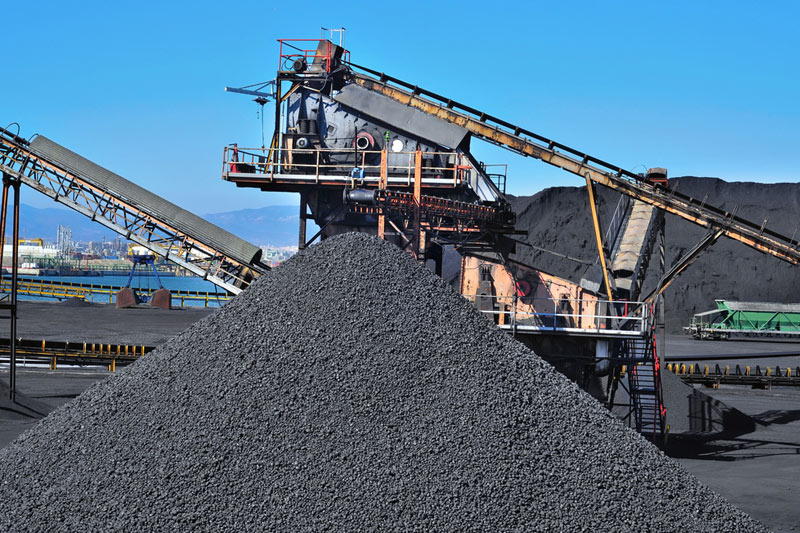(The opinions expressed here are those of the author, a columnist for Reuters.)
By Clyde Russell
LAUNCESTON, Australia, July 21 (Reuters) - Not all coal rallies are created equal, with fairly stark differences emerging in the gains this year for various grades of the fuel, suggesting buyers are becoming more selective.
In some ways it's surprising that coal of any grade has staged a rally this year, given the market remains over-supplied and major consumers such as China and India are actively trying to cut consumption or imports, or both.
But an analysis of pricing data for the year so far shows that buyers appear prepared to pay more for higher quality coal, while largely shunning the poorer grades produced mainly by top exporter Indonesia.
The main Asian benchmark for thermal coal used in power plants is Newcastle, the Australian port that is the world's largest export harbour for the fuel.
There are several prices for Newcastle coal, but they are all consistent in showing a rally of around 22 percent so far this year.
The weekly index GCLNWCWIDX has gained 22.9 percent year-to-date, ICE Newcastle coal futures NCFMc1 are up 20.3 percent while Newcastle free-on-board (FOB) coal CO-FOBNWC-AU has risen 22.3 percent.
The weekly index stood at $62.23 a tonne in the seven days to July 15, up from its 2016 low of $47.37, although still less than half the post-2008 recession peak of around $136 a tonne, reached in February 2011.
Nonetheless, Newcastle coal is on track to snap five straight years of losses despite the general gloom surrounding the long-term future of the polluting fuel, given its role in climate change.
The Newcastle index is based on coal with a calorific value of 6,000 kilocalories per kilogram (kcal/kg), making it a quality grade, especially when compared to those from Indonesia.
The ICE Indonesia sub-bituminous contract SUBMc1 is based upon coal with a calorific value of 4,900 kcal/kg, and this has gained just 15 percent so far this year.
A similar Indonesian contract run by the Singapore Exchange SGXCISc1 is up by 12 percent, confirming that lower-grade coal has underperformed its higher-quality Australian rival.
South African thermal coal, which is similar in quality to Australian and is increasingly finding its way to India, has also enjoyed strong gains this year.
The Richards Bay FOB price CO-FOBRBY-SA has gained 28.5 percent to $62.60 a tonne, putting it a small premium to Newcastle FOB coal, a change from the start of 2016 when it was at a discount.
CHINA DOMESTIC UNDERPERFORMANCE
While Australian and South African thermal coal are enjoying strong gains, Chinese domestic coal has joined Indonesia in underperforming.
Qinhuangdao FOB coal CO-FOBQHG-CN is up 10 percent so far in 2016, while another measure of the Chinese benchmark by provider Steelhome SH-QHA-TRMCOAL has gained just 13.5 percent in yuan terms and 10.3 percent in U.S. dollars.
The modest gains for Chinese domestic coal is more likely a reflection of suppressed demand in the northeast of the country, where Qinhuangdao is located, as the coal is rated at 5,500 kcal/kg, which is towards the better end for thermal grades.
China's coal imports gained 8.2 percent in the first six months of 2016 over the same period last year, but this has largely been driven by demand for coking coal, the more energy-intensive fuel used for steel-making.
Using detailed data for the five months to May, and coking coal imports are up 28.4 percent, with major beneficiaries being Mongolia and Australia, with increases of 38.6 percent and 31.8 percent respectively.
However, imports of non-coking bituminous coal, mainly used in power plants, have dropped 15.7 percent, with purchases from Indonesia declining by 15.3 percent and Australia by 23.4 percent.
India's coal imports appear to be increasing in recent months, with Thomson Reuters Supply Chain & Commodity Research data showing June as the fourth straight months of gains.
Nonetheless, ship-tracking data suggests that imports in the first seven months of the year will be about 121.6 million tonnes, down from 124.2 million in the same period last year.
However, India is changing the mix of the coal it buys, with imports from Indonesia dropping by almost 20 percent in the first seven months of the year, while those from South Africa rose by 16.5 percent and from Australia by 5.9 percent.
A similar switch to quality can be seen in another of Asia's other major coal importers, with Japan cutting purchases from Indonesia by 2 percent in the first five months of the year, but boosting those from Russia, which produces higher-quality coal, by 5.6 percent.
Overall, the pricing and import data suggest that higher-quality coal is enjoying more demand than poorer grades, a trend that may continue given the increasing focus on limiting global pollution from coal.
<^^^^^^^^^^^^^^^^^^^^^^^^^^^^^^^^^^^^^^^^^^^^^^^^^^^^^^^^^^^ Graphic of ICE Newcastle vs ICE Indo sub-bit:
http://tmsnrt.rs/29XaJVF
^^^^^^^^^^^^^^^^^^^^^^^^^^^^^^^^^^^^^^^^^^^^^^^^^^^^^^^^^^^> (Editing by Christian Schmollinger)
